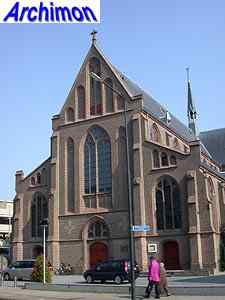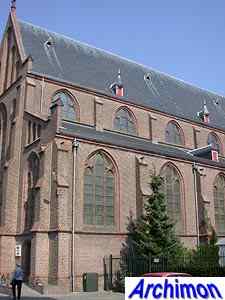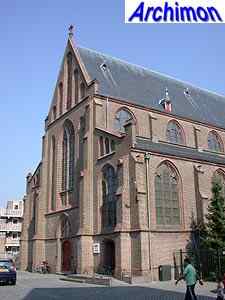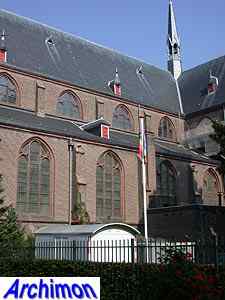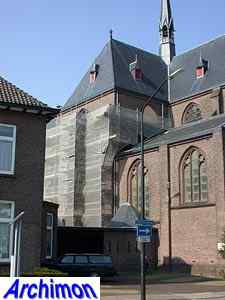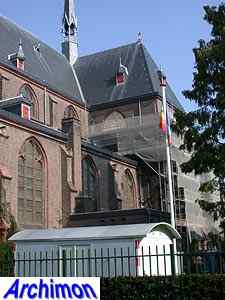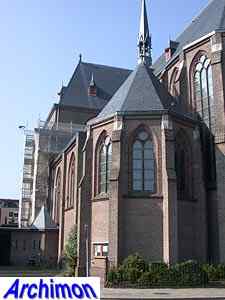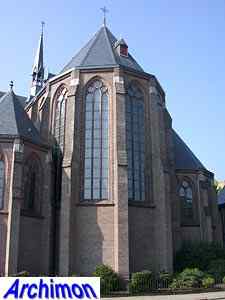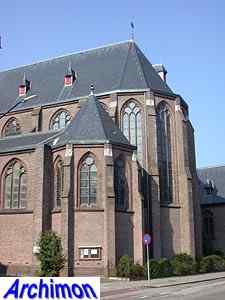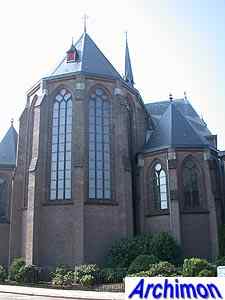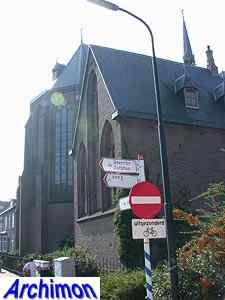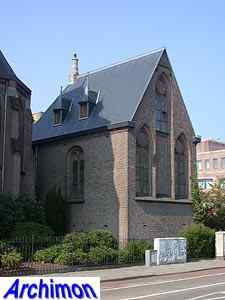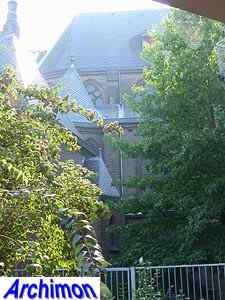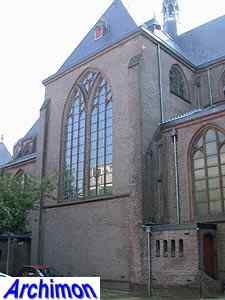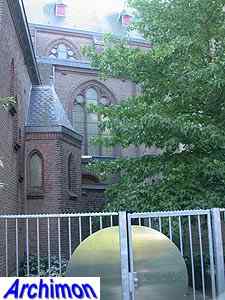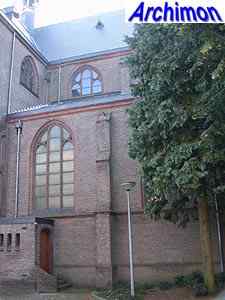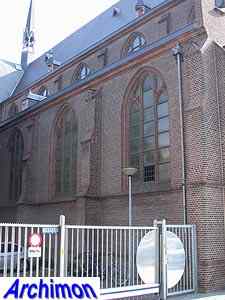
Apeldoorn (G): O.L.V. ten Hemelopneming (J.W. Boerbooms, 1897-1898, J.Th.J.Cuypers & J. Stuyt, 1901-1902)
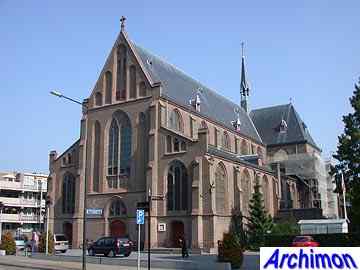 After the
Reformation the catholics became a minority in Apeldoorn. Until well
into the 19th century they had no church of their own but instead
attended the catholic churches in nearby villages Vaassen and
Duistervoorde. In 1843 a catholic church was finally built in
Apeldoorn, a simple neo-Classical building with a wooden tower. As the
village rapidly developed and became a town, the
church became too small for the growing parish. In 1876 the church was
enlarged with a transept and a new choir, but it was not enough. Some
twenty years later the decision was made to replace the church by a new
one.
The chosen architect
was J.W.Boerbooms, one of many former employees of P.J.H. Cuypers'
office
who later became independent architects. In
Boerbooms' own work,
there's little influence of Cuypers to be seen. Instead, his churches,
he only built six, are influenced by Lower Rhine Gothic, much like A.
Tepe's churches, making Boerbooms a follower of the conservative
'Utrecht School' of neo-Gothic rather than Cuypers' more progressive
'Amsterdam School'.
After the
Reformation the catholics became a minority in Apeldoorn. Until well
into the 19th century they had no church of their own but instead
attended the catholic churches in nearby villages Vaassen and
Duistervoorde. In 1843 a catholic church was finally built in
Apeldoorn, a simple neo-Classical building with a wooden tower. As the
village rapidly developed and became a town, the
church became too small for the growing parish. In 1876 the church was
enlarged with a transept and a new choir, but it was not enough. Some
twenty years later the decision was made to replace the church by a new
one.
The chosen architect
was J.W.Boerbooms, one of many former employees of P.J.H. Cuypers'
office
who later became independent architects. In
Boerbooms' own work,
there's little influence of Cuypers to be seen. Instead, his churches,
he only built six, are influenced by Lower Rhine Gothic, much like A.
Tepe's churches, making Boerbooms a follower of the conservative
'Utrecht School' of neo-Gothic rather than Cuypers' more progressive
'Amsterdam School'.
The O.L.V. ten Hemelopneming, also known as Mariakerk, was built in two
stages. The three-aisled basilican nave was built in 1897-1898.
Boerbooms died in 1899, at the age of 49, and J.Th.J.Cuypers
and J.
Stuyt were commissioned for the second stage. In
1901-1902 they added the transept and choir in a style matching
Boerbooms' nave. Although plans for a tower were made in ca.
1946,
probably by J.G.A.
van Dongen, it was not
built for financial reasons.
At the
north side of the church a convent and school had been built in ca.
1890. These were demolished in ca. 1985 and replaced by a hideous
apartment building which unfortunately disturbs the view at this side
of the church.
